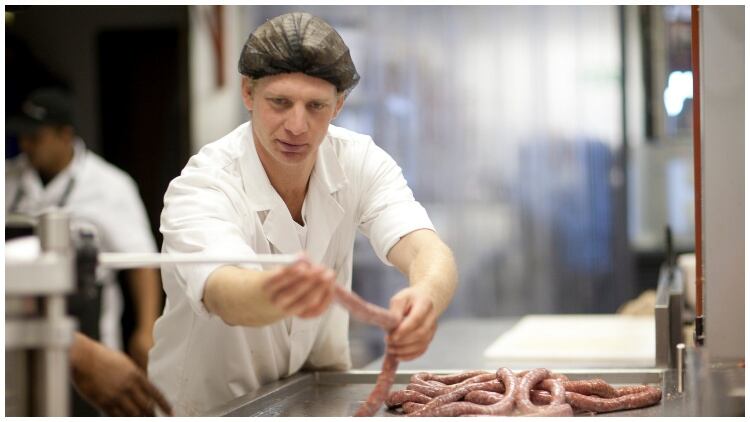After five years, the food and drink sector came together last week for the UK’s leading trade event for the food and drink processing, packaging and logistics industries.
FoodEx Manufacturing Solutions, held at Birmingham’s NEC, took place on 24-26 April 2023, and was a hotspot for innovation and ‘food for thought’. The line up included digital twin technology powred by virtual reality, through to electric boilers and automated packaging lines.
Technology and automation are biggest opportunities
Speaking to Food Manufacture on the greatest opportunities, Infor highlighted silver linings: “With Covid and all the things that have happened recently, we’ve seen a lot of disruption. So one of the opportunities out of this is our ability to be agile and flexible. It [disruption] has improved our ability to adapt to these changing market forces.”
Many would agree that technology has played a big role in giving way to ‘elasticity’ within our sector, but what was also made apparent at the show was its part in helping with labour shortages.
As Jon Poole, leadership coach and consultant at Step Change, illuminated, the greatest opportunity is “digitisation, encompassing AI, automation and robotics”.
However, he explained that for us to truly embrace these things, we will need to plug the skills gap that currently hangs over our industry. “If we do that, we’re going to improve quality and we’re going to have better supply chain integrity. It’s going to revolutionise the industry.
“The point is though, we need to be bold about telling people about this – we can’t hide this, we need to be able to say the food sector is proud of its science and technology, and by doing so, we’ll attract more people into the sector.”
In other words, technology, skills and people are all interlinked and each requires the other to give way to new opportunity.
The experts at ULMA agreed: “Automation potential is the greatest opportunity. With the labour shortages we see in the world over, it’s the ability to help businesses that are finding it difficult to get staff in to run the line and production.
“We [ULMA] are able to help across all packing mediums, from flow packing to tray sealing and vertical bagging, and provide some solutions that not only automate the feeding but the backend automation and loading into pallets.”
Hitting sustainability targets
For Fulton Boilers, Net Zero was the prominent opportunity but fuelled by technology innovation. “We have a range of efficient boilers to help them accomplish this [Net Zero]. We are helping customers to move to electrification of boilers – this helps meet targets. Along with that, we help customers look at their steam systems to help them become more efficient, looking at steam trap survey and demand side reduction, to reduce energy costs.”
DDK shared similar views, citing that “sustainability construction” will play an important role in reducing carbon footprint, again referencing the importance of tech in delivering this.
“We work with our clients to build a digital twin of their facilities before its built, so they can actually walk around and look at the size and scope.”
By creating this virtual facility, DDK can work with its clients to identify where losses could be made and improve efficiencies within the building. The kit, which was demoed at the show, works by using a VR headset and a point a click function operated by two joysticks, enabling the user to be completely immersed.



